Definition
Herpes zoster is also called as shingles. It is a Greek word herpein meaning to creep, and zoster meaning girdle or belt. It is an acute viral infection mainly affecting the skin and nerves, manifested by small blisters appearing along the important nerve segments. Herpes zoster is caused by the same virus as that of chicken pox; it probably constitutes the response of the partially immune person, resulting from the reactivation of a latent varicella-zoster virus, whereas chicken pox is the response of the non-immune host.
Herpes zoster is contagious if blisters have burst and the person with whom the virus comes into contact has not been previously affected by chicken pox (a contagious spread causes chicken pox rather than herpes zoster).
Pathophysiology
VZV is certainly transmissible through the airborne route, but not with any close personal contact. The virus is thought to gain entry via the respiratory tract and spreads shortly after to the lymphoid system. After an incubation period of 14 days, the virus arrives at its main target organ, the skin. The virus has probably spreads to other organ systems in the body without any ill effect.
Following the primary infection, the virus remains latent in the cerebral or posterior root ganglia. The virus reactivates in the ganglion and tracks down the sensory nerve in the area of the skin innervated by the nerve, producing a varicella form rash in the distribution of a dermatome.
Causes of herpes zoster
- Shingles are caused by the virus that is responsible for chickenpox. After recovering from chickenpox, the virus remains dormant in the central nervous system (CNS) in the body.
- Children who had chickenpox in infancy or whose mothers had chickenpox late in pregnancy can trigger the
- When there is a slight weakening of the immune system makes the virus to reactivate.
- In many cases, it is not clear that why the varicella-zoster virus begins multiplying to cause herpes zoster.
Risk factors
- Anyone who has ever had chickenpox can develop Herpes zoster.
- Being older than 50. Herpes zoster is most common in people older than 50. The risk increases with age.
- Affected by certain diseases. Diseases that weaken your immune systems, such as HIV/AIDS and cancer, can increase your risk of herpes zoster.
- Undergoing cancer treatments such as radiation or chemotherapy can lower your resistance to diseases and may trigger herpes zoster
- Consuming certain medications. Drugs designed to prevent rejection of transplanted organs can increase your risk- as can prolonged use of steroids, such as prednisone.
Epidemiology of herpes zoster
As cell-mediated immunity decreases with age, so the incidence of herpes zoster increases:
- In early adult life, there is a prevalence of 2-3 per 1000
- For patients in their sixties, 5 per 1000 suffer
- For patients aged 80 and over, 10.1 per 1000 have shingles
- 20% of all adults suffer an attack of shingles at some time in their lives; up to 2% may have a second episode
Symptoms
Mostly shingles start with itching, burning, tingling or stinging in the rashes developed area. Sometimes this may lead to severe pain and extremely sensitive skin. Individuals may observe the following symptoms.
- A headache
- Fever and chills
- Nausea
- Body aches
- Swollen lymph glands
After few weeks the rashes of shingles will appear in a cluster of small red patches that lead to small blisters. These fluid-filled blisters eventually break open, and the small sores begin to slowly dry and scab over. The crusts usually fall off after several weeks, and the shingles rash typically clears up after approximately two to four weeks. Though uncommon, in cases of a severe rash, skin discoloration or scarring of the skin is possible.
Complications of herpes zoster
Complications that may arise includes
- Eye problem if the blister close to the eye
- Bacterial skin infections from the blisters
- Pneumonia
- Ramsay Hunt syndrome, which can occur if shingles affect the nerves in your head and can result in partial facial paralysis or hearing loss if left untreated (if treated early, most patients make a full recovery)
- Encephalitis or meningitis
Diagnosis and test
- Most cases of shingles can be diagnosed with a physical examination of rashes and blisters. Your doctor will also ask questions about your medical history.
- In rare instances, your doctor may need to test a sample of your skin or the fluid from your blisters. This involves using a sterile swab to collect a sample of tissue or fluid. Samples are then sent to a medical laboratory to confirm the presence of the virus.
Treatment and medications
There’s no cure for shingles, but prompt treatment with prescription antiviral drugs can speed healing and reduce your risk of complications. These medications include:
- Acyclovir (Zovirax)
- Valacyclovir (Valtrex)
Shingles can cause severe pain, so your doctor also may prescribe:
- Capsaicin topical patch (Qutenza)
- Anticonvulsants, such as gabapentin (Neurontin)
- Tricyclic antidepressants, such as amitriptyline
- Numbing agents, such as lidocaine, delivered via a cream, gel, spray or skin patch
- Medications that contain narcotics, such as codeine
- An injection including corticosteroids and local anesthetics
Shingles generally last between two and six weeks. Most people get shingles only once, but it is possible to get it two or more times.
Prevention of herpes zoster
- The only way to reduce the risk of developing shingles and the long-term pain from postherpetic neuralgia (PHN) is to get vaccinated. The shingles vaccine is available in pharmacies and doctor’s offices. Talk with your healthcare professional if you have questions about shingles vaccination.
- A new recombinant zoster vaccine should be given to immunocompetent adults ≥ 50 yr whether they have had herpes zoster or not; 2 doses are given 2 to 6 mo apart
 Diseases Treatments Dictionary This is complete solution to read all diseases treatments Which covers Prevention, Causes, Symptoms, Medical Terms, Drugs, Prescription, Natural Remedies with cures and Treatments. Most of the common diseases were listed in names, split with categories.
Diseases Treatments Dictionary This is complete solution to read all diseases treatments Which covers Prevention, Causes, Symptoms, Medical Terms, Drugs, Prescription, Natural Remedies with cures and Treatments. Most of the common diseases were listed in names, split with categories.
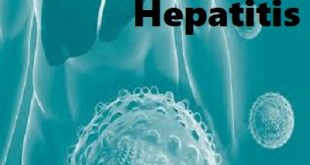
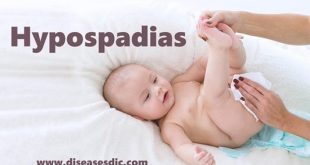

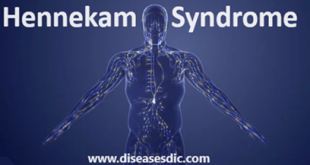
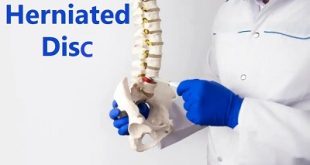
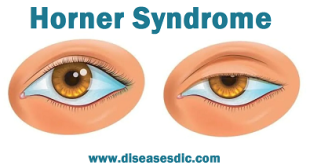
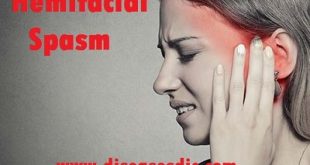

I get this infection more than 3times a year .what should I do ?I am only 26yrs old .
Please get vaccinated if the problem persists for long.
nice information, just an addition, if shingles has affect the eye,high dose of ancyclovir 800mg qid should be given.
send some sexual transmitted diseases
very soon we will update more diseases about STD.
topical acyclovir can be applied 5 times a day
This is so interesting. Hope that one day the will be a cure for HSV TYPE 1 & 2 as well as for HERPES ZOSTER. Let World Health Organization sit down & discuss about the cure.
can herpes a hereditary
No its caused by a virus.
is it true that most of people affected by this disease are HIV patients
Not only with HIV people..But also people who has met previously with Hzv can get this disease.
Good learning stool but scientists should keep searching for the cure.
Is it better to take vaccine, what are the chances of getting shingles with the vaccine?
You have a greater chance of getting shingles as you age, which is why the shingles vaccine is recommended for everyone age 60 years and older. The shingles vaccine reduces the risk of shingles by half (51%) and reduces the risk of prolonged pain at the rash site by 67%.
Rubbing a solution of potassium permanganate on affected areas is also helpful.
i had immunised against chicken pox, still i have to take vaccine against vzv?
what can u suggest to be the proper medication for such illness if it comes so often,
like once every two months.
Please consult with your doctor.
is this antiviral infection?hzv
It is a viral infection. Which can be eradicated by antiviral drugs.
This is helpful pliz keep it. I am l got this problem on medication right now not full recover. O hope l will
Can it affect any sex organ?
it does not have any effect on the reproductive organs and therefore cannot adversely affect fertility.
Marvellous
fabulous knowledge
about disease
thanks for such nice information
what will be dose of acyclovir and for how long it should be given in shingles
is corticosteriod contraindicated in shingles or not
For adult
injectable solution: 50mg/mL
oral suspension: 200mg/5mL
For pediatric
injectable solution: 50mg/mL
oral suspension: 200mg/5mL
Thanks. this helped a lot. I just got this. treating lupus and it’s suspected was as a result of Side effect of prednisolone.
I get these zosters when I take antibiotics like panadol or brupen in my private parts.
its a viral infection.and should be given antiviral drugs.
please you people should keep it up and continue to notifying us am great full about this information keep it up
I have been diagnosed with inward shingles. There is nothing here that mentioned this. Please advise further. My Dr gave steroids, is there anything else that can be done? This is affecting my head, eyes and now muscles in both arms ache. I’m miserable! Help!
Please consult a doctor asap.
You didn’t mention anything about Herpes being caught by sexual contact and I know its possible by information from a physician. It can cause lesions/blisters on any part of your body. Do you have this kind of information on this?
Herpes that is caught sexually is genital herpes only. Please read about genital herpes in the post.
calamine lotion should be used for soothing skin+prophylactic Antibiotic+acyclovir oral and topical may be needed
thanks I really gain more undastanding
I got this last year and I was given antibiotics after that was injected and within 3 wks I was fine it was dry…..bt it pains yoooh thanks for the information hope there will be cure soon
there are sometimes the HZV attacked the Young adult (adolescent) developed the blisters characterized shingles
when this patient hasn’t been
affected by HIV. I found this patient in Western north RWANDA.
Can it affect the same part of the body for several times?
Yes, it may affect the same area under irregular management of Herpes Zoster.
I have read the comments all are impressive.
I think shingles vaccine should be vaccinated to any one with immune compromise no matter how age s/he is.
The doctors say Herpes virus do not have medical cure because the virus is capable of hiding within the human cells, it remains protected from your immune system. Herpes isn’t a special virus – your immune system has the tools to fight it back. But because it is able to lay dormant in protected cells, your immune system is unable to remove it from your body,But with strong reactive herbal medication is capable of getting rid of the virus gradually and totally from your body without damaging any